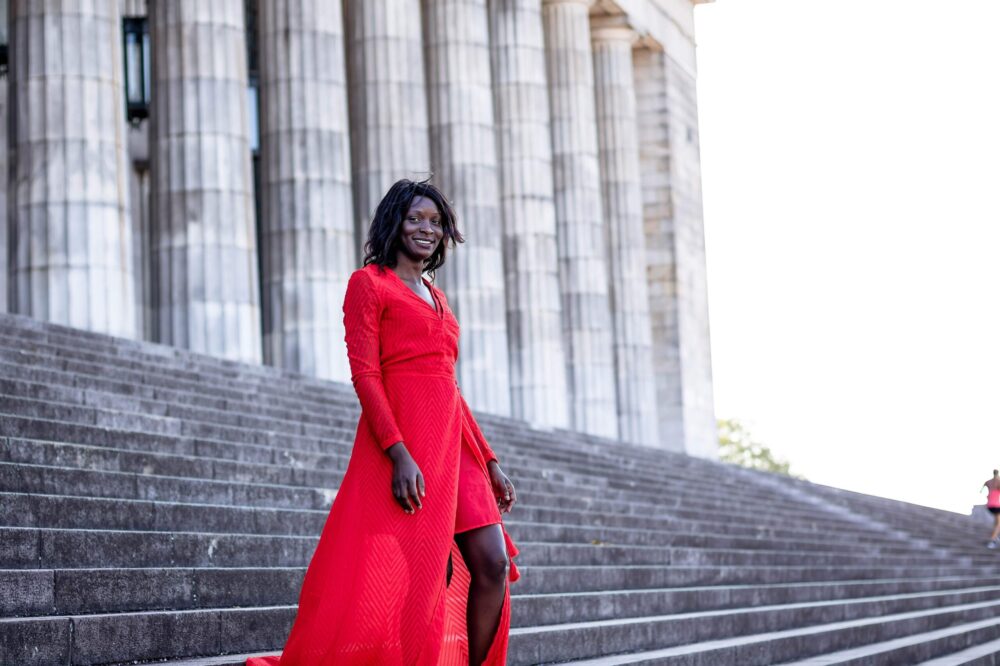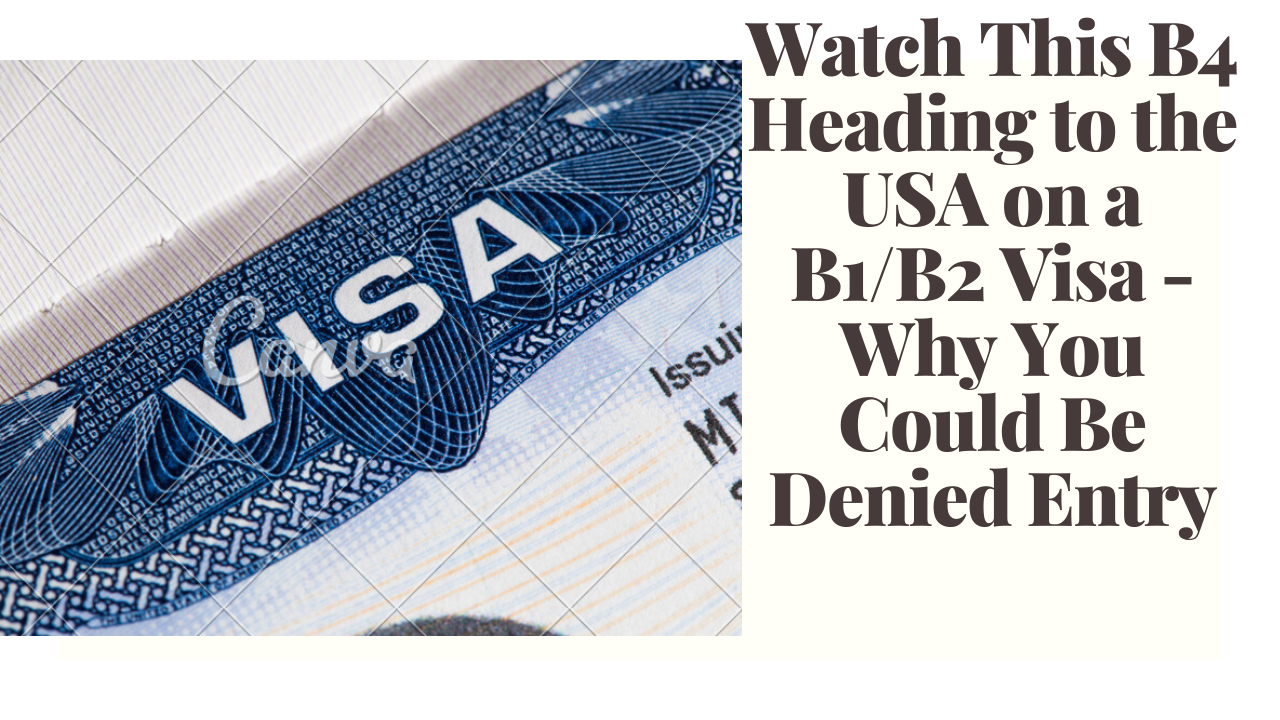In today’s post, I share with you some of the reasons one could be denied entry into the US even when they are in possession of a valid B1/B2 non-immigrant visa. A visa does not determine whether a traveler is admissible to the United States.
But first, a disclaimer:
I do not work for the US government neither am I a lawyer. The following information is based on experiences of people who kindly shared their stories with me.
What's Covered in This Article
Demonstrated immigrant intent when traveling on a non-immigrant visa
For example, if you applied for lets say you applied for The DV-2021 Diversity Visa Green Card program, won the lottery AND then filed a petition, you do establish immigrant intent. So, lets say in September 2020 you decide to travel to the US on a B1/B2 visa that you probably already had before submitting your Green Card application. This could form a basis for being denied admission on the basis of demonstrated immigrant intent.
Now, beginning 2019, all Green Card applicants had to submit their valid passport details while filing their DS-260 with the Kentucky Consular Center, technically updating CBP records that you’ve applied for an immigrant visa. To be honest, I am not sure what the implications are – based on the fact that you applied for a Green Card, does it establish immigrant intent since this is an an immigrant visa – I don’t know. If you do, kindly share with us in the comments below 🙁
Failure to demonstrate to the boarder control officer that you are a bonafide traveler for the stated purpose only and will return home after your visit
When you leave your country for the US on B1/B2 visa, you’re essentially saying that your purpose of travel is either: for business-related (but you’re not allowed to engage in paid work aka perform productive labor) – B1; or for pleasure-related e.g. tourism, visiting friends and relatives etc.).
Therefore, the honors is on you to convince the border control officer who will be handling your case that your sole purpose for visiting the US is any of the above. Based on the reason you give and the border control officer’s judgement, you would either be allowed entry of denied.
Another classic example is when you’re issued with a B1/B2 visa for the purpose of tourism or attending a function for instance. But then you decide to carry your academic certificates. My friend, if they find you you will be deported. And yes! They do conduct random checks of your bags and/or electronic devices at border control. True story!!! And please don’t get me started on privacy issues yada yada…. why are you even carrying our academic certificates to the wedding of your grandmother’s cousin’s younger brother’s niece 🙁
Overstaying your stay on a prior visit
Now, there is a common misconception among people traveling to the US on a B1/B2 visa. That is, the duration of stay at any time of visit. Most people assume that this is the same as their visa tenor period. Sorry to burst your bubble but these are not the same.
You may be holding a 10-year multiple entry B1/B2 visa. However, it is the order control officer who will be handling your case who determines your visa’s validity date (i.e. the date until which you can stay in the US). When you’re granted entry, the officer will issue you with an I-94 card which indicates your validity date – the maximum duration of which is 6 months out of any twelve, unless you can provide a good cause for longer durations.
Staying in the US beyond the validity date indicated in the I-94 even if your visa is still valid beyond the indicated date and can result in being denied entry.
Trying to enter the US less than 6 months from your last 6-month visit
Additionally, should you be given a 6 month I-94 validity and you stay the entire time, you will be denied entry if you decide to re-enter the US before another 6 months elapses.
When you have maxed out your cumulative 180 day stay in any one calendar year
Technically, a multiple-entry B1/B2 US should grant you entry to the US as many times as you want, provided that the total cumulative time spent in the US in one calendar year is no more than 180 days.
Thus, trying to enter the US when you’ve already stayed a cumulative 180 days in that calendar year could lead to you being denied entry.
Visiting the US too frequently
Repeatedly entering the US and leaving for only a few days, could lead to you being denied reentry. Unless of course you can provide a valid reason for your suspicious actions. And in worse case scenario, your multiple-entry visa may be cancelled.
Extended stays in the US. Longer than in your home country
This one here raises so many red flags.
Like, don’t you have something to do back at home? A job perhaps? or family to attend to?
Being in possession of derogatory images on your cellphone, laptop, etc.
If you made your US visa application any time after June 2019, you must have had to disclose your social media handles and profile. Whatever is on your handles is really your responsibility and could work against you.
So choose your social media friends carefully as well as carefully censor what you ‘like’, or ‘forward’.
This includes messages, images or videos on your social media sites like Facebook and Twitter, WhatsApp, etc,
Check out this Pakistani guy’s experience here.


